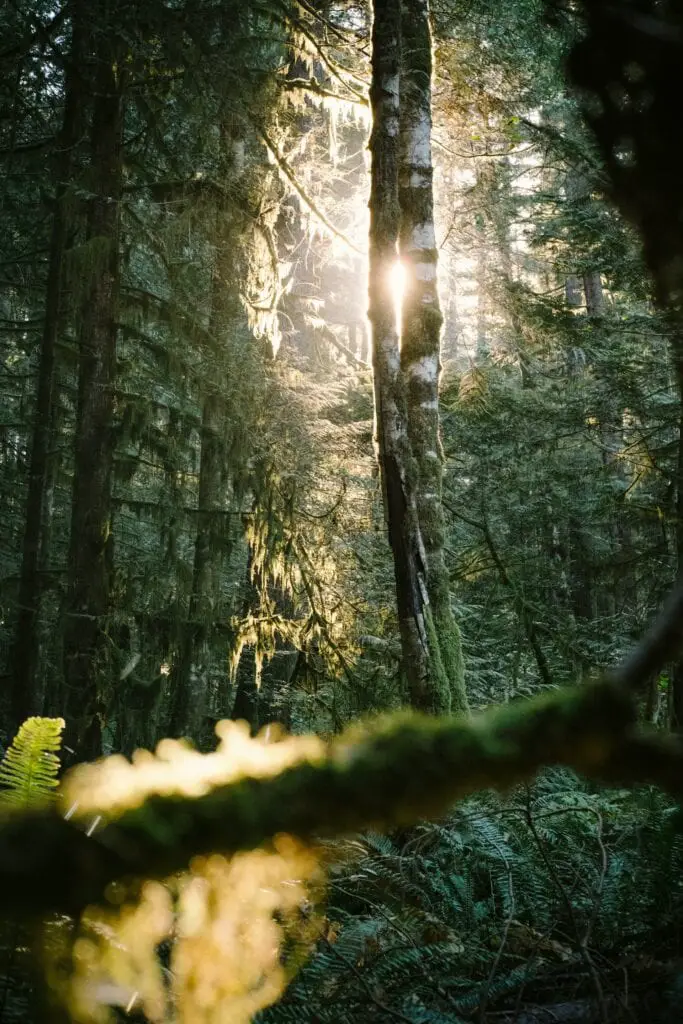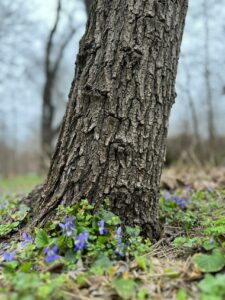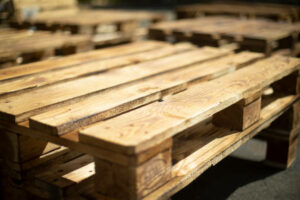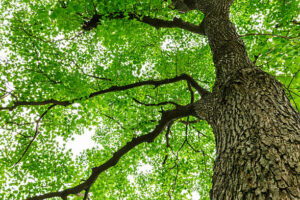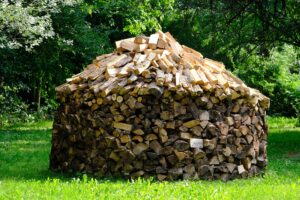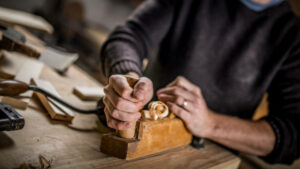Wood that is water resistant can resist cracking, rotting, and other forms of damage caused by moisture. This type of wood is often used for outdoor construction and decking projects. These woods come from rainforest regions, where they’re exposed to a lot of rain, humidity, and extreme weather. They know how to deal with these challenges. Numerous water-resistant wood types can be used for outdoor furniture and artifacts however we’ll be discussing just a few below.
Teak
Teak is a type of wood that is known for its durability and strength. It is used in the construction of decking, buildings, and furniture. It is also naturally resistant to rot and insects. It has natural oils that protect against water and other environmental elements. It is also a very dense wood with a high Janka hardness rating.
One of the reasons that makes teak so durable is its natural oil content. This oil repels water and helps to keep the wood from warping or rotting. It is also able to hold up against the harsh weather conditions that are common in tropical climates. It can withstand intense rainfall, snow storms, and scorching heat without becoming damaged. It also holds up to changes in humidity and does not sink or become brittle.
Reclaimed teak can offer the same benefits as new teak, although it comes at a more affordable price. It has been harvested from old-growth forests and grown in soils with a high silica content, which is another contributing factor to its natural water resistance. It also has a higher level of extractives than new plantation teak. This translates into better resistance against fungi and increased natural durability. However, working with teak can be hazardous if the proper safety precautions are not taken. Exposure to sawdust can lead to irritation of the skin and eyes, and may even cause asthma-like symptoms.
Cumaru
Cumaru is another water-resistant wood that has gained popularity as an alternative to teak. It is a dense tropical hardwood that has an impressive Janka hardness rating of 3540lbf. This makes it a top choice for outdoor decks and cladding. It also holds up well to extreme weather conditions and possesses natural durability and insect resistance.
In terms of strength, cumaru is more comparable to Ipe than teak. It has a class 1 natural durability rating which means it will last over 25 years without the need for preservatives. Additionally, it is a porous material that has good resistance to fungi and insects.
This makes it an excellent choice for decking, siding, fences, and railings. It is a waterproofing stain the wood is also a great option for furniture and other indoor applications. The wood is very dense and heavy, but it is not as difficult to work with as some other hardwoods. However, it may be necessary to use specialized tools and expertise when working with this wood. It can be prone to cracking and leaching tannins, which can require additional maintenance.
Like other exotic hardwoods, cumaru is sourced from Central and South America. In many cases, these trees are harvested using clear-cutting methods, which means that large areas of forest are cleared to get a few hundred cumaru tree seeds. This creates a less biodiverse and disaster-proof environment. It is also a fairly slow-growing tree, so it takes over 150 years to reach maturity and be ready for harvesting.
Ipe
Ipe is a dense, hardwood species that stands out in terms of its superior water resistance alone. It resists rot, weathering, and abrasion well, and is naturally insect-resistant as well. This wood is often used in outdoor structures, such as trellises, pergolas, decks, and fences. Ipe is an attractive choice for homeowners looking to reduce their environmental impact, as it requires little treatment and can last over 50 years when used outdoors.
While Ipe is a very wood oil and a great choice for decks, patios, and pool areas, it can become slippery when wet. Those who choose Ipe should consider anti-slip additives or alternative surface treatments. It is also important to keep in mind that Ipe is an exotic wood and can hurt the environment if harvesting is done poorly.
Cumaru is another standout choice for water-resistant wood, as it is waterproof timber and has similar properties to Ipe. This wood is harvested from Central and Northern South America and is commonly used for carpentry, floors, outdoor furniture, and other construction projects. It is also a popular decking option, as it has exceptional durability and can withstand extreme weather conditions.
Another water-resistant option is ipe, which is harvested from Brazil. It is durable, long-lasting, and beautiful. It can be stained or left natural, and it is a great choice for those who want to create an environmentally friendly space. Like teak, ipe is an excellent choice for decks, pergolas, and other outdoor structures.
Thermo-Ayous
Thermo-Ayous is an on-trend tropical hardwood that combines beautiful mid-brown tones with phenomenal physical properties. It’s an ideal option for water-resistant timber projects that will be exposed to a variety of conditions, especially high humidity and rainfall. It’s also a cost-effective alternative to premium western red cedar.
Typically used as decking and cladding, Thermo-Ayous is sourced from sustainable forests in Cameroon. This African wood species has a beautiful light tan to golden color and a smooth, knot-free texture that can be easily stained or painted. Its natural oils protect it from moisture damage, fungi, and insects. Its dimensional stability and durability also make it well-suited for outdoor cladding, siding, and soffit applications.
Ayous timber undergoes a process of sustainable thermal modification during drying, which makes it more durable and water-resistant. The heat treatment limits shrinking and swelling and improves its dimensional stability. Additionally, it enhances the resistance of timber species of ayous to a range of microorganisms and insects, which means it’s highly suited for outdoor use in timber projects and extreme weather conditions.
Oak wood is another great option for water-resistant timber, with a high tannin content that acts as a natural preservative against moisture damage. It’s also highly hygroscopic, with the ability to absorb up to 10% of its weight in water. This hygroscopic quality white oak makes wood waterproof and it is suitable for cladding and decking that will be exposed to a lot of rain, humidity, and sun exposure.
Douglas Fir
Douglas Fir (Pseudotsuga menziesii) wood is a hard and durable softwood that’s known for its strength. It can withstand changes in humidity and temperature, making it an excellent choice for structural elements like doors, windows, and trusses. It also dries rapidly with minimal dimensional movement, minimizing warping and twisting. In addition, it is easy to work with and has a variety of finishes.
Douglas fir has a natural resistance to moisture damage and decay caused by fungi. Its strong density and straight grain pattern also make it an ideal material for load-bearing applications, like beams, posts, and joists. Its beautiful amber coloring and distinct long-grain patterns also make it a popular decorative option.
While both fir and pine are popular choices for home construction projects, fir is more water-resistant than pine. A 2007 trial conducted by Farm Forestry New Zealand found that while radiata pine reached a moisture content of 27% after seven days of exposure to water, fir stayed significantly lower—about 20%. That difference can make all the difference in a timber project that’s success or failure when it comes to moisture and the ability to withstand weathering. That’s why fir is often used for outdoor projects, such as barns and sheds. It can also add a sense of rustic beauty to cabins and traditional homes.
Cherry
Cherry is a beautiful wood that is prized for high-end woodworking projects such as cabinetry, furniture, musical instruments, and other fine wooden works. It has a smooth, intricate grain pattern of rich reddish-brown color and is durable and long-lasting. Cherry is also a naturally water resistant, wood type, and when finished with a protective sealant, it resists moisture and other harmful elements.
Like teak, western red cedar is another premium wood species with exceptional water resistance. This wood’s excellent dimensional stability and natural durability are well-known across several regions and continents, and its high degree of resistance prevents the cracking and splitting typically caused by best timber species by rain or sun exposure. It comes in a variety of colors, from golden brown to reddish tones, and can be treated for even more longevity.
American elm is another water-resistant hardwood, known for its good workability and medium flexural strength and stiffness. It can be stained and sanded to achieve many different looks, from light to dark and everything in between. It is water resistant wood has a low shrinkage and swelling ratio and resists termite damage.
Many African hardwoods are known for their exceptional durability and rot resistance against the elements, including Iroko and Balau. They are often used as a replacement for teak decking, as they offer comparable durability and a lower price point. Iroko is especially impressive, as it holds up against the harshest weather conditions and resists swelling, shrinking, decay-resistant rotting, and cracking. It’s also incredibly tough against insects and has a natural protection against fungi and spores.
